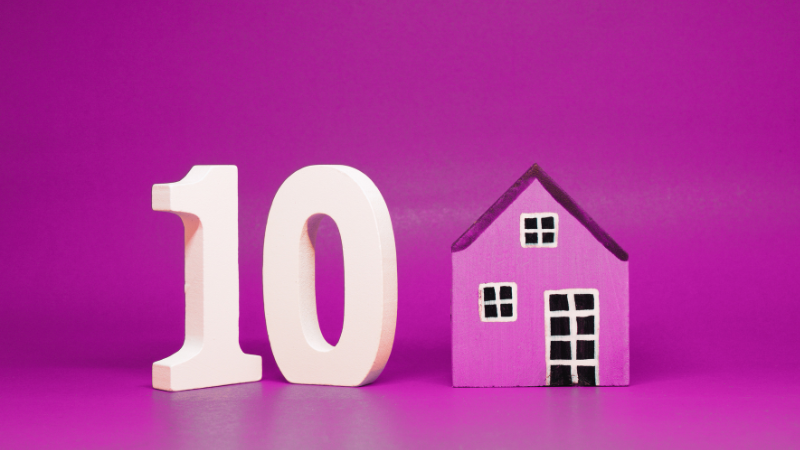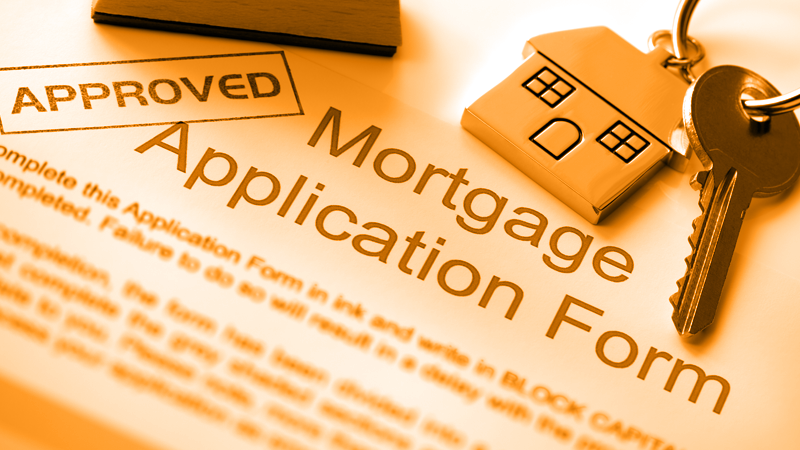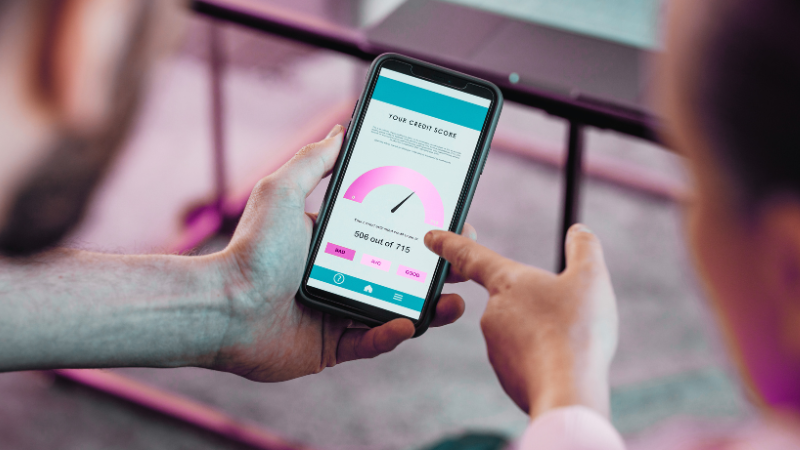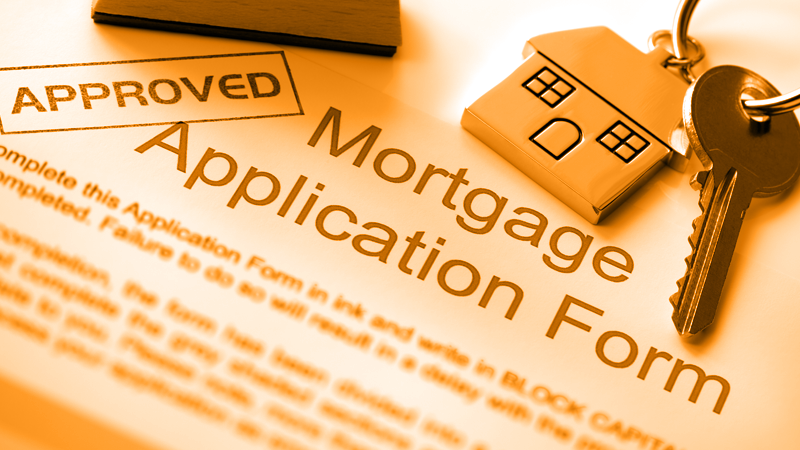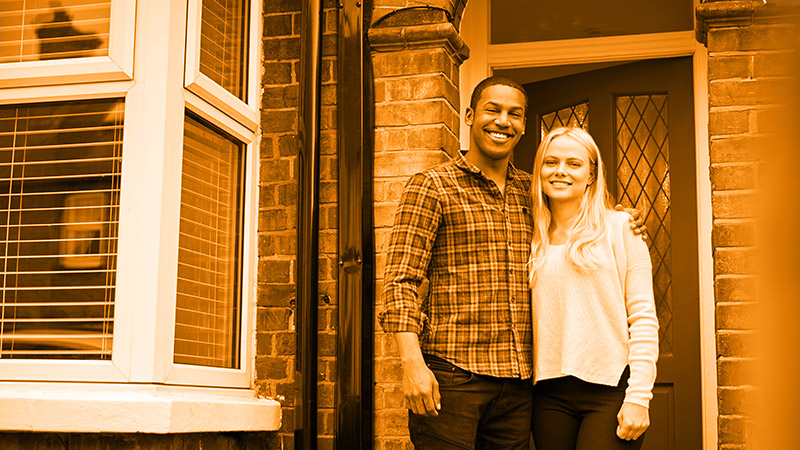Taking out a mortgage is a big financial commitment, so it’s essential to work out how much it will cost you.
Knowing your monthly repayments will help you determine whether the deal you get is affordable now and in the future.
This guide explores everything you need to know about repayments on an £80,000 mortgage over 10 years.
What is the Monthly Cost of an £80,000 Mortgage Over 10 Years?
The monthly cost of an £80,000 mortgage over 10 years would be £849. This is based on a capital repayment agreement and an interest rate of 5%, a typical deal in the current UK market.
The total amount you’d pay by the end of the mortgage term would be £101,823. You can get lower monthly repayments if you take out the mortgage for a longer term, but you’d pay more overall.
What Factors Impact Repayments an £80,000 Mortgage Over 10 Years?
Various factors can impact the monthly repayments on an £80,000 mortgage over 10 years. These include:
Repayment Type
You can choose a capital or interest-only repayment mortgage, and each will impact how much you pay monthly.
Most residential mortgages in the UK involve a capital repayment structure where you pay back a portion of the capital and interest every month.
With interest-only mortgages, your monthly repayments only cover the interest, so you’ll still owe the full amount you borrow at the end of the term.
You’ll get lower monthly repayments with an interest-only mortgage, but you’ll pay more overall and must have a reliable repayment vehicle to repay the capital in one lump sum.
Interest Rate
Lenders charge an interest on the amount you borrow when you take out a mortgage. It’s the cost of borrowing the money and is a percentage of the loan amount. The interest is usually added to your monthly mortgage repayments, impacting how much you pay.
A low interest rate will translate to lower monthly repayments and reduce the total cost of the mortgage, so you can save a lot by getting a favourable rate.
Factors that will impact the interest rate you get include your credit history, employment status, and loan-to-value (LTV) ratio.
For example, although there are lenders who will help you get a mortgage if you have non-traditional employment, they’ll likely charge a higher interest rate than someone with a formal job.
The table below shows how much a £80,000 mortgage over 10 years will cost per month and, in total, based on different interest rates on a capital repayment structure.
|
Interest Rate |
Monthly Repayments |
Overall Repayment |
|
3.5% |
£791 |
£94,930 |
|
4% |
£810 |
£97,195 |
|
4.5% |
£829 |
£99,493 |
|
5% |
£849 |
£101,823 |
|
5.5% |
£868 |
£104,185 |
|
6% |
£888 |
£106,580 |
Product Type
The mortgage type you choose will impact your repayments. The most common product types for residential mortgages in the UK are fixed-rate and tracker-rate mortgages.
A fixed-rate product allows you to lock in the same interest rate for a period. The interest rate remains the same no matter what happens, so your repayments won’t be affected when interest rates in the market rise.
You can plan for the same amount monthly and get significant savings if you lock in a low rate for the long term.
Tracker rate mortgages change according to the base rate set by the Bank of England. The tracker rate rises when the base rate rises and falls when it goes down, meaning your repayments can differ from one month to the next.
Related reading:
- Reasons for remortgaging.
- Remortgaging to release equity.
- Remortgaging to buy another property.
- Remortgaging with bad credit.
- Remortgaging for home improvements.
- I own my house outright can I remortgage?
- Capital raising mortgages.
Credit History
Your credit history helps lenders determine how well you manage your finances and your reliability as a borrower.
It can show how responsible you’ve been when borrowing money. A positive credit history will improve your chances of getting a mortgage with better rates, which will reduce your monthly repayments and overall cost.
You’ll likely get a higher interest rate if you have a negative credit history since lenders consider you a higher risk.
Deposit Size
The deposit size will affect the interest rate you get and impact your monthly repayments.
Lenders have minimum deposit requirements, which is the amount you must put down to qualify for the mortgage.
The lowest you can get is 5% of the property’s value, but such deals will feature less favourable interest rates.
Many lenders will want you to put down a 10% deposit. Higher deposits can give you access to a wider pool of lenders with better deals and more competitive interest rates that will keep your repayments low.
What Other Costs Are Involved?
You should expect other costs before and after taking out an £80,000 mortgage. These include:
Product/Arrangement Fees
Some providers can charge up to £2,000 to set up the mortgage. Others may not charge anything but will likely have higher interest rates.
You can pay it upfront or add it to the mortgage, increasing your debt and monthly repayments.
Valuation Fees
Depending on the lender, you may need to cover the property valuation cost. Valuation ensures the property is worth what you’re paying and can cost you between £250 and £1,500. In certain deals, the lender can waive this cost.
Booking Fee
You may need to pay a fee when making a formal mortgage application. It can cost from £99 to £250, and you’ll need to pay upfront. Some lenders can waive this fee or roll it into the product fees.
Account Fees
The account fee covers the general administration of your mortgage account, including maintenance and eventual closure. It can cost from £100 to £300.
Missed Payment Penalties
If you fall into arrears or miss a mortgage payment, the lender may charge a missed payment penalty, which can vary depending on the lender.
Early Repayment Charges
Some lenders can impose an early repayment charge (ERC) if you overpay more than the allowed limit or pay off your mortgage too early. It’s usually 1% to 5% of the outstanding mortgage.
Call us today on 01925 906 210 or contact us to speak to one of our friendly advisors.
Final Thoughts
Repayments on an £80,000 mortgage over 10 years can vary depending on the repayment type, interest rate, deposit size, product type, and credit history.
Consulting a qualified and experienced mortgage broker can ensure you get the best deal for your situation.
